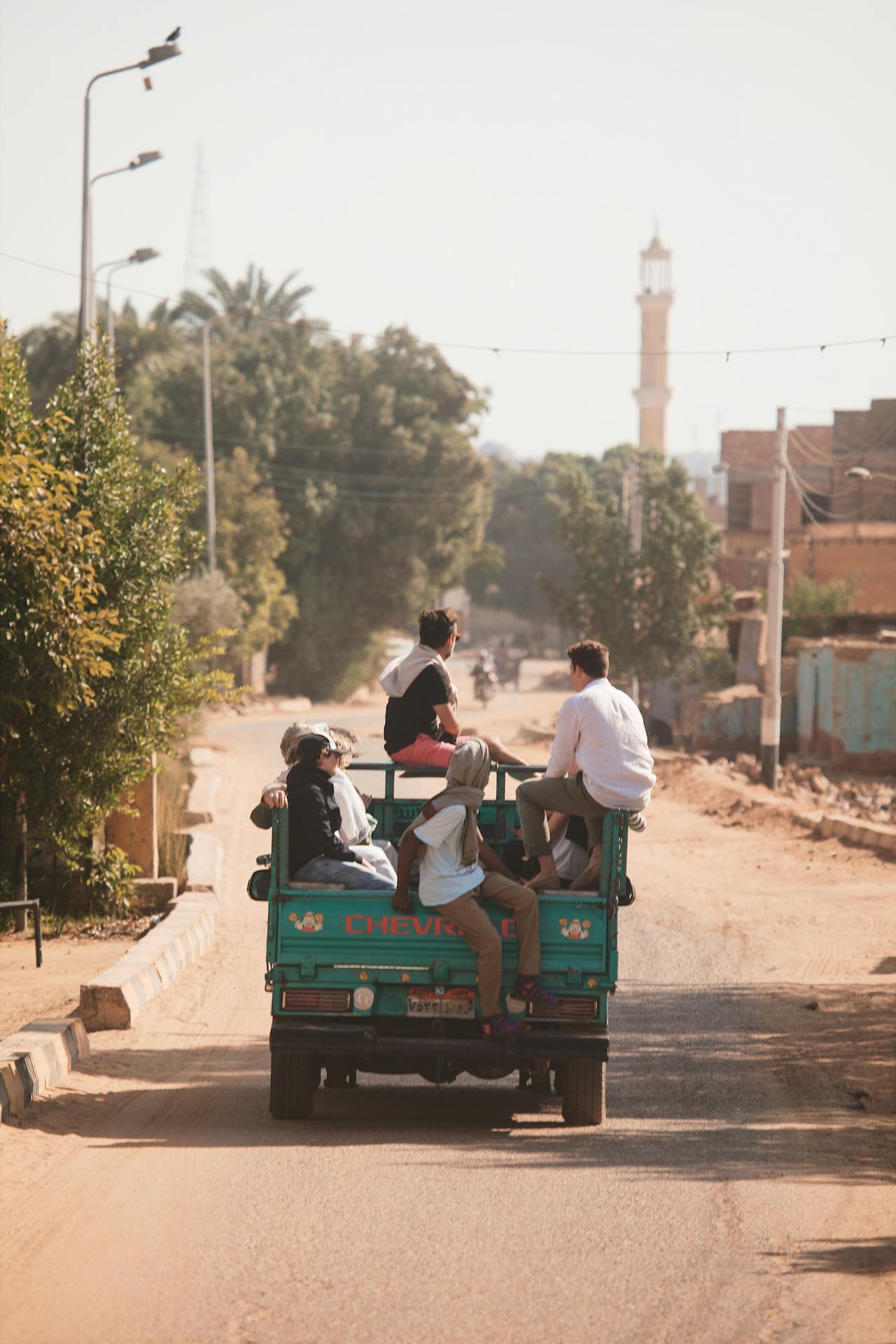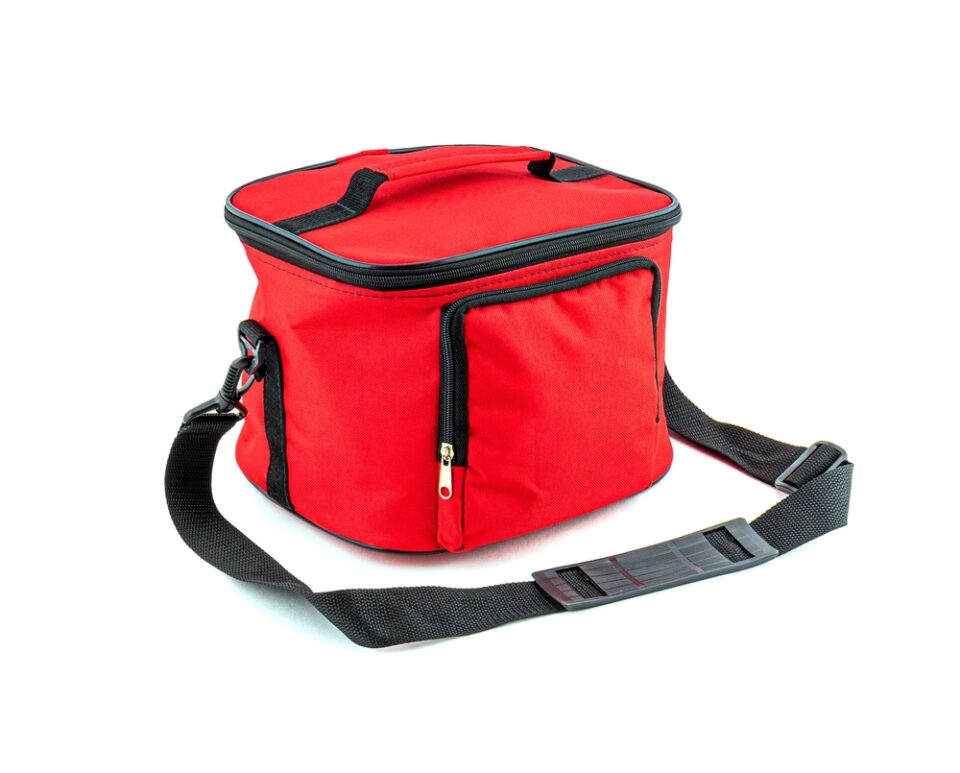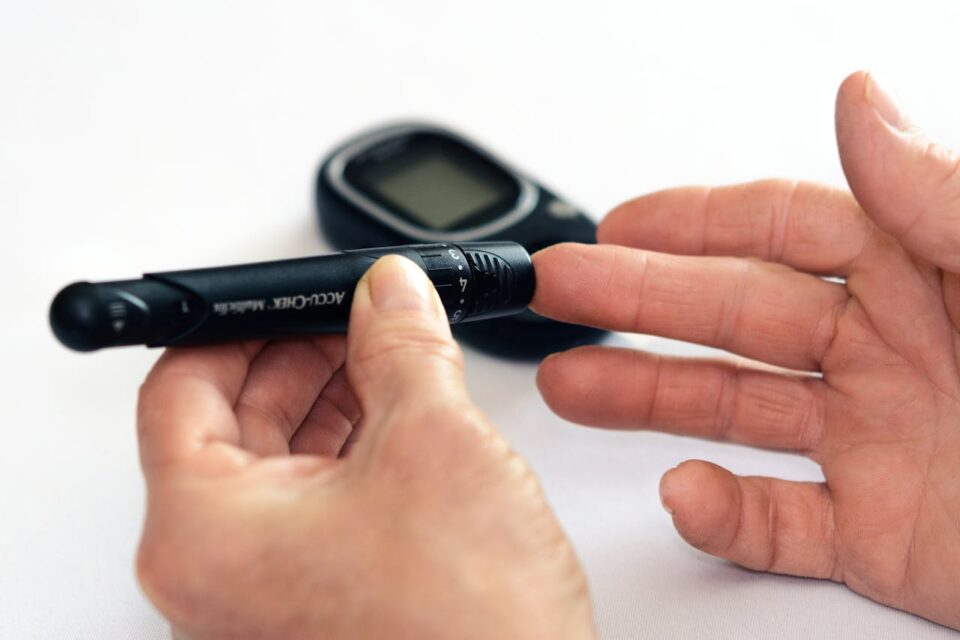Earlier this year, I made a few posts on managing diabetes during wartime. I was amazed at the number of people in areas of conflict that began tuning in to my website and have continued to come back on a somewhat regular basis. It is obvious citizens are hungry for the information, so with the enlistment of AI and YouTube, I am providing more detailed and pertinent information in an attempt to help those experiencing war while tying to manage their diabetes.

During wartime, individuals with diabetes face several significant concerns that can impact their health and well-being:
1. **Access to Medications and Supplies**: The availability of insulin, oral medications, glucose monitors, and testing supplies may be severely limited or disrupted, making it challenging to manage their condition effectively.
2. **Healthcare Access**: Conflict can lead to the destruction of healthcare facilities, making it difficult for individuals to receive routine check-ups or emergency care for diabetes-related complications.
3. **Nutrition**: Wartime conditions often result in food shortages and limited access to nutritious food, which can complicate diabetes management. Individuals may struggle to find appropriate foods that help maintain stable blood sugar levels.
4. **Stress and Mental Health**: The stress of living in a conflict zone can lead to anxiety and depression, which can adversely affect diabetes management by influencing eating habits, physical activity, and adherence to treatment plans.
5. **Displacement and Refugee Status**: People with diabetes may be displaced from their homes, facing challenges in accessing healthcare and supplies in refugee camps or unfamiliar environments.
6. **Increased Risk of Complications**: The lack of proper medical care and stress can heighten the risk of diabetes-related complications, including infections, cardiovascular issues, and diabetic emergencies.
7. **Lack of Diabetes Education**: In wartime, there may be fewer opportunities for education on diabetes management, leaving individuals with inadequate knowledge about how to effectively manage their condition.
8. **Communication Barriers**: Access to information about available resources, services, and support may be compromised, making it difficult for individuals to know how to seek help or where to find necessary supplies.
9. **Emergency Situations**: In crisis situations, individuals may not have immediate access to medical assistance during emergencies related to their diabetes, such as severe hypoglycemia or diabetic ketoacidosis.
Addressing these concerns requires coordinated efforts from humanitarian organizations, healthcare providers, and community leaders to ensure that individuals with diabetes receive the support and resources they need during wartime.
Helpful Organizations
Where to Get Help
Several global organizations provide assistance to people with diabetes during wartime, focusing on healthcare, resources, and advocacy. Some of these organizations include:
1. **International Diabetes Federation (IDF)**: This organization works to promote diabetes care and management worldwide, including in conflict zones. They provide guidelines and support for managing diabetes under challenging circumstances.
2. **World Health Organization (WHO)**: WHO plays a crucial role in coordinating health responses during emergencies, including supplying essential medications and medical supplies for people with chronic diseases like diabetes.
3. **Doctors Without Borders (Médecins Sans Frontières, MSF)**: This organization provides medical assistance in conflict areas, often including care for chronic conditions such as diabetes.
4. **Red Cross and Red Crescent Societies**: These humanitarian organizations provide medical assistance and support to individuals affected by conflict, including those with diabetes.
5. **Diabetes organizations at national levels**: Many countries have diabetes associations that may work in collaboration with international bodies to provide support and resources for people with diabetes during wartime.
These organizations often focus on ensuring access to insulin, diabetes management supplies, and education on managing diabetes in crisis situations.
How You Can Help

To help diabetes patients during a war or crisis, consider the following organizations that often provide support in such situations:
1. **Diabetes Organizations**: Look for national or local diabetes associations, such as the American Diabetes Association or Diabetes UK, which may have specific programs for aiding affected patients.
2. **Humanitarian Aid Organizations**: Organizations like the Red Cross, Doctors Without Borders, and UNICEF often provide medical assistance, including support for chronic conditions like diabetes.
3. **Local Health Services**: Research local health services or clinics in the affected area that might need donations or support to help diabetes patients directly.
4. **Crowdfunding Platforms**: Websites like GoFundMe or JustGiving may have specific campaigns aimed at helping diabetes patients affected by the war.
5. **Online Platforms**: Websites like GlobalGiving or GiveDirectly allow you to donate to specific causes, including health support in crisis areas.
Make sure to verify the credibility of any organization before making a donation.
Diabetes Kits
There are diabetes kits specifically designed for individuals in military settings or war zones. These kits usually include essential supplies such as:
1. **Blood Glucose Meters**: Portable devices for monitoring blood sugar levels.
2. **Test Strips**: For use with glucose meters to check blood sugar levels.
3. **Insulin**: Depending on the type of diabetes, pre-filled syringes or insulin pens may be included.
4. **Needles and Lancets**: For insulin administration and blood sampling.
5. **Alcohol Swabs**: For sterilization before injections or blood sampling.
6. **Glucose Tablets or Gels**: Quick sources of sugar to treat hypoglycemia.
7. **Educational Materials**: Instructions for managing diabetes in challenging environments.
These kits are designed to be portable, durable, and easy to use, catering to the specific needs of individuals managing diabetes while deployed.
Keeping Insulin Cold

During wartime, keeping insulin cold can be a significant challenge due to limited access to refrigeration. Here are some methods that people have historically used to keep insulin cool:
1. **Insulated Containers**: People often use insulated bags or containers to help maintain a lower temperature. These can be lined with materials that provide thermal insulation.
2. **Ice Packs or Gel Packs**: If available, ice packs or gel packs can be frozen and then placed alongside the insulin in an insulated bag to keep it cool.
3. **Water and Evaporation**: Some individuals use a method involving wet cloths or towels. By wrapping insulin in a cloth soaked with water and placing it in a well-ventilated area, evaporation helps cool the insulin.
4. **Cool Water Baths**: If access to cool water is available, placing insulin vials in a container of cool water can help maintain a lower temperature.
5. **Underground Storage**: In some situations, people dug small pits or used underground spaces where temperatures are naturally cooler to store insulin.
6. **Relocation**: When moving, individuals often try to stay in cooler environments or seek shade to protect insulin from heat.
7. **Regular Monitoring**: People would frequently check their insulin to ensure it remained within the appropriate temperature range, adjusting storage methods as needed.
8. **Community Support**: In some cases, communities would come together to share resources or knowledge about keeping medications cool, helping those in need.
These methods highlight the resourcefulness and creativity of individuals in challenging situations, helping them manage their diabetes even in difficult times.
Evacuations

During wartime, evacuation priorities can vary based on several factors, including the severity of the conflict, the nature of the threat, and the resources available. Generally, individuals with chronic health conditions, such as type 1 diabetes, may be prioritized for evacuation due to their specific medical needs. Here are some considerations regarding the evacuation of people with type 1 diabetes:
1. **Medical Needs**: Individuals with type 1 diabetes require regular insulin administration and monitoring of blood glucose levels. Their medical needs can make them more vulnerable in crisis situations, leading to prioritization for evacuation.
2. **Vulnerability**: People with type 1 diabetes may be more susceptible to complications if they cannot access insulin or medical care, which can influence decisions regarding evacuation.
3. **Age and Other Factors**: Evacuation decisions often consider the age and overall health of individuals. Children and the elderly with diabetes may be prioritized due to additional vulnerabilities.
4. **Availability of Resources**: The availability of medical supplies, including insulin and equipment, can impact evacuation decisions. In resource-limited situations, those with critical medical needs may be prioritized.
5. **Local Policies**: Each conflict may have different policies or protocols regarding evacuation, which can affect how individuals with chronic conditions are treated.
While individuals with type 1 diabetes may be among those evacuated due to their medical needs, the actual process can be complex and influenced by many external factors. Overall, the priority is typically given to those at greater risk of medical emergencies.
Type 1 Diabetes

Managing type 1 diabetes during a war or conflict situation requires careful planning and preparation. Here are some key steps to consider:
1. **Emergency Kit**: Prepare an emergency diabetes kit that includes insulin, syringes or an insulin pump, glucose monitors, test strips, and fast-acting glucose sources (like glucose tablets or juice). Ensure that these supplies are stored in a safe, easily accessible location.
2. **Medication Supply**: Stock up on insulin and other necessary medications, if possible. Check expiration dates regularly and replace them as needed.
3. **Dietary Planning**: Understand how to maintain a balanced diet with limited resources. Focus on foods that can help manage blood sugar levels, like carbohydrates that are easy to measure and control.
4. **Monitoring Blood Sugar**: Regularly monitor blood glucose levels. In a chaotic environment, it may be challenging, but try to maintain a routine as much as possible.
5. **Communication**: Inform trusted friends or family members about your condition and your management plan. Ensure they know how to help in case of an emergency.
6. **Stay Informed**: Keep updated on the situation in your area. Knowing where to find medical help or supplies can be crucial.
7. **Mental Health**: The stress of war can significantly impact diabetes management. Engage in stress-reducing activities when possible and seek support from others in similar situations.
8. **Seek Medical Assistance**: If you have access to medical facilities, prioritize visiting healthcare providers for routine check-ups and to ensure you have enough supplies.
9. **Know Your Rights**: In some cases, individuals with chronic conditions have specific rights to access care and supplies. Familiarize yourself with these rights if possible.
10. **Build a Support Network**: Connect with local or online diabetes support groups for advice and encouragement during tough times.
Being proactive and prepared can help manage diabetes effectively, even in crisis situations.
Type 2 Diabetes

For someone with type 2 diabetes during wartime, managing the condition effectively is crucial. Here are some recommended courses of action:
1. **Maintain Medication Supply**: Ensure you have an adequate supply of diabetes medications, including oral medications or insulin if prescribed. Stock up when possible.
2. **Monitor Blood Sugar Levels**: Regularly check your blood glucose levels to understand how stress, food availability, and physical activity impact your diabetes. This will help you make necessary adjustments.
3. **Create a Flexible Meal Plan**: Plan meals that focus on whole foods, including vegetables, lean proteins, and whole grains. Be prepared to adapt based on available food resources.
4. **Stay Hydrated**: Drink plenty of water, as dehydration can affect blood sugar levels. Carry a water supply if possible.
5. **Learn About Local Resources**: Identify nearby clinics or organizations that can provide support, medications, or supplies for diabetes management.
6. **Communicate Your Needs**: Inform family, friends, or caregivers about your diabetes management plan and how they can assist you in case of emergencies.
7. **Keep Snacks Handy**: Carry portable snacks that are suitable for managing blood sugar levels, such as nuts, seeds, or low-sugar protein bars.
8. **Manage Stress**: Stress can impact blood sugar levels. Practice stress-reducing techniques, such as deep breathing or mindfulness, whenever possible.
9. **Adjust to Physical Activity**: Be mindful of your activity levels. Increased physical activity can lower blood sugar levels, so monitor your blood glucose and adjust your food intake accordingly.
10. **Stay Informed**: Keep yourself updated on diabetes management strategies and emergency procedures to handle potential complications.
11. **Plan for Emergencies**: Have a clear plan for what to do in case of a diabetes-related emergency, including knowing the signs of hypoglycemia and hyperglycemia.
By staying proactive and adaptable, individuals with type 2 diabetes can better navigate the challenges of wartime while maintaining their health and well-being.
Gestational Diabetes

For someone with gestational diabetes during wartime, managing the condition is important for both the mother and the developing baby. Here are some recommended courses of action:
1. **Maintain Regular Check-Ups**: If possible, continue attending prenatal appointments to monitor both blood sugar levels and overall health. Communicate with healthcare providers about any challenges.
2. **Monitor Blood Sugar Levels**: Regularly check blood glucose levels as recommended. This helps track how food, stress, and physical activity impact blood sugar.
3. **Create a Flexible Meal Plan**: Focus on a balanced diet that includes whole grains, lean proteins, healthy fats, and plenty of vegetables. Be prepared to adapt your meal plan based on available food resources.
4. **Stay Hydrated**: Drink plenty of water to stay hydrated. Proper hydration can help with overall health and blood sugar management.
5. **Learn About Local Resources**: Identify nearby clinics or organizations that can provide support, food assistance, or medical supplies if needed.
6. **Communicate Your Needs**: Inform family and friends about your condition and how they can help, especially in case of emergencies related to blood sugar levels.
7. **Keep Healthy Snacks Handy**: Carry nutritious snacks that can help maintain stable blood sugar levels, such as nuts, yogurt, or whole-grain crackers.
8. **Manage Stress**: Stress can affect blood sugar levels, so practice stress-reducing techniques, such as deep breathing or gentle exercises, when possible.
9. **Stay Active**: Engage in safe physical activities, such as walking, to help manage blood sugar levels. Consult with a healthcare provider about appropriate exercise routines.
10. **Plan for Emergencies**: Have a clear plan for how to handle blood sugar emergencies, including recognizing the signs of hypoglycemia and hyperglycemia.
11. **Educate Yourself**: Stay informed about gestational diabetes management strategies and resources to help navigate the challenges during wartime.
By taking proactive steps and remaining adaptable, individuals with gestational diabetes can better manage their health and support a healthy pregnancy during difficult times.
Help for Palestinians
Accessing insulin in conflict zones like Palestine can be challenging due to disruptions in healthcare systems and supply chains. Here are some potential sources where Palestinians might seek insulin:
1. **Local Hospitals and Clinics**: Government and nonprofit hospitals often have diabetes clinics or pharmacies that may provide insulin. It’s advisable to check with local healthcare facilities about their stock and availability.
2. **Non-Governmental Organizations (NGOs)**: Various NGOs and humanitarian organizations work in conflict areas to provide medical supplies, including insulin. Organizations like the Red Crescent or international health NGOs may have programs in place.
3. **Pharmacies**: Local pharmacies may carry insulin, although availability can vary. It’s worth checking multiple pharmacies in the area.
4. **Community Health Centers**: Community health centers often provide essential medications and may have programs for chronic disease management, including diabetes care.
5. **International Aid**: During crises, international aid organizations sometimes deliver medical supplies, including insulin, to affected populations. Efforts by organizations like UNICEF or the World Health Organization (WHO) may provide necessary resources.
6. **Health Ministry Initiatives**: The Palestinian Ministry of Health may implement initiatives to distribute insulin and other diabetes supplies, especially in response to humanitarian needs.
7. **Support Networks**: Connecting with local diabetes support groups or networks may provide information on where to find insulin and how to access medical care.
8. **Travel to Neighboring Areas**: If feasible and safe, some may consider traveling to nearby regions or countries where insulin may be more readily available.
9. **Online Resources**: Some organizations might offer telehealth services or online resources for managing diabetes, including how to obtain medications.
In any case, individuals should prioritize their safety and health while seeking necessary medical supplies and support.
Help for Israelis
In Israel, individuals needing insulin during wartime can access it through several avenues:
1. **Local Pharmacies**: Pharmacies throughout Israel typically carry insulin and can provide it with a prescription. It’s advisable to check with multiple pharmacies if there are shortages.
2. **Healthcare Clinics and Hospitals**: Government hospitals and healthcare clinics often have diabetes care departments that can provide insulin and medical advice. Major hospitals like Sheba Medical Center and Hadassah Medical Center are equipped to assist patients with chronic conditions.
3. **Health Maintenance Organizations (HMOs)**: Israel has several HMOs (such as Clalit, Maccabi, Leumit, and Meuhedet) that offer comprehensive healthcare services, including diabetes management and access to medications like insulin.
4. **Community Health Centers**: Many community health centers provide essential medical services, including diabetes care and access to insulin.
5. **Diabetes Support Organizations**: Various organizations in Israel focus on diabetes care and may provide resources, support, and information on obtaining insulin.
6. **Emergency Medical Services**: In times of crisis, emergency medical services may be mobilized to assist those with chronic conditions, including diabetes, ensuring they have access to necessary medications.
7. **Online Pharmacies**: Some online pharmacy services may deliver insulin and other medications directly to individuals, providing an alternative if local options are limited.
8. **International Aid**: In extreme situations, international organizations may offer support, including medications, but this is less common in Israel compared to other regions.
Individuals should stay informed about local resources and communicate with healthcare providers for the best options available during challenging times.
Help for Russians
During wartime, obtaining insulin can be challenging due to disruptions in supply chains and healthcare services. In Russia, individuals who need insulin might explore several options:
1. **Hospitals and Clinics**: State-run hospitals and clinics usually have some supplies of essential medications, including insulin. Patients may need to show their medical prescriptions.
2. **Pharmacies**: Community pharmacies might stock insulin, but availability can vary, especially in conflict zones.
3. **Charity Organizations**: Some non-governmental organizations may provide medical assistance and emergency supplies, including insulin.
4. **Military Medical Services**: For those in the military, medical services may provide insulin to soldiers with diabetes.
5. **International Aid**: In some cases, international organizations may deliver medical supplies to affected areas, including insulin.
6. **Online Resources**: In some scenarios, patients may find ways to order medications online, though this can be risky and may not always ensure quality or legality.
It’s crucial for individuals with diabetes to have a plan in place and seek out reliable information and resources to manage their health during such difficult times.
Help for Ukrainians
During wartime, obtaining insulin in Ukraine can be challenging due to the disruptions in healthcare systems and supply chains. Here are some potential sources for insulin:
1. **Hospitals and Clinics**: State and military hospitals often have emergency supplies of insulin. Patients may need to provide a prescription or medical documentation.
2. **Pharmacies**: Pharmacies in urban areas may still carry insulin, although availability can vary widely depending on the region and the ongoing conflict.
3. **Humanitarian Organizations**: Various NGOs and international organizations may provide medical supplies, including insulin, to those in need. Organizations like the Red Cross and Médecins Sans Frontières (Doctors Without Borders) often assist in such situations.
4. **Community Health Programs**: Local health initiatives or community clinics may offer assistance and supplies for individuals with chronic conditions.
5. **Military Medical Services**: For military personnel and their families, military medical units may provide insulin and other necessary medications.
6. **Online Services**: In some cases, individuals may attempt to order medications online, but this can come with risks regarding the legitimacy and safety of the products.
It’s essential for those with diabetes to have a plan and to stay informed about available resources during such challenging circumstances.
Hopefully, these wars will end soon and these issues will no longer be of great importance for those in war-torn areas. Godspeed.
